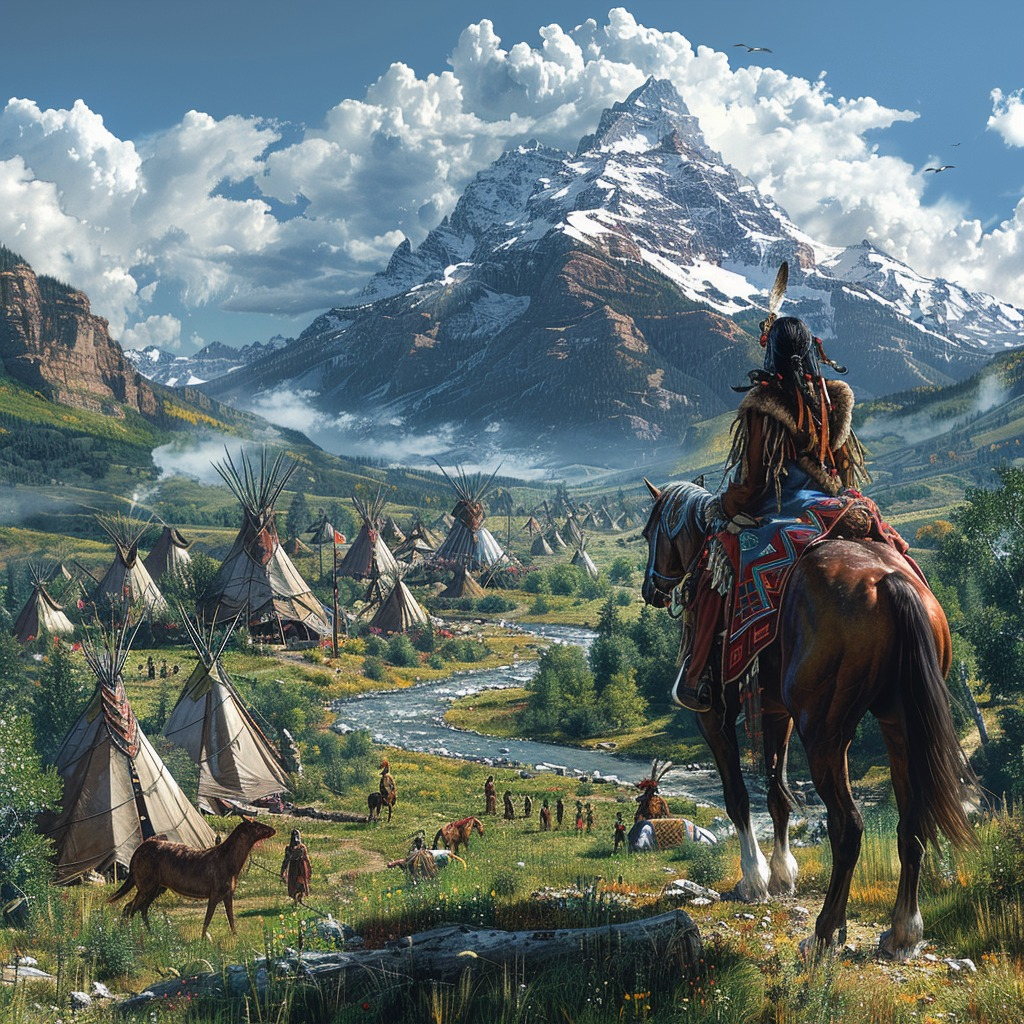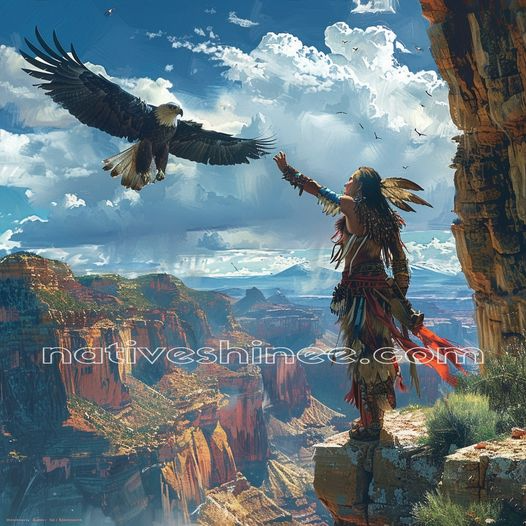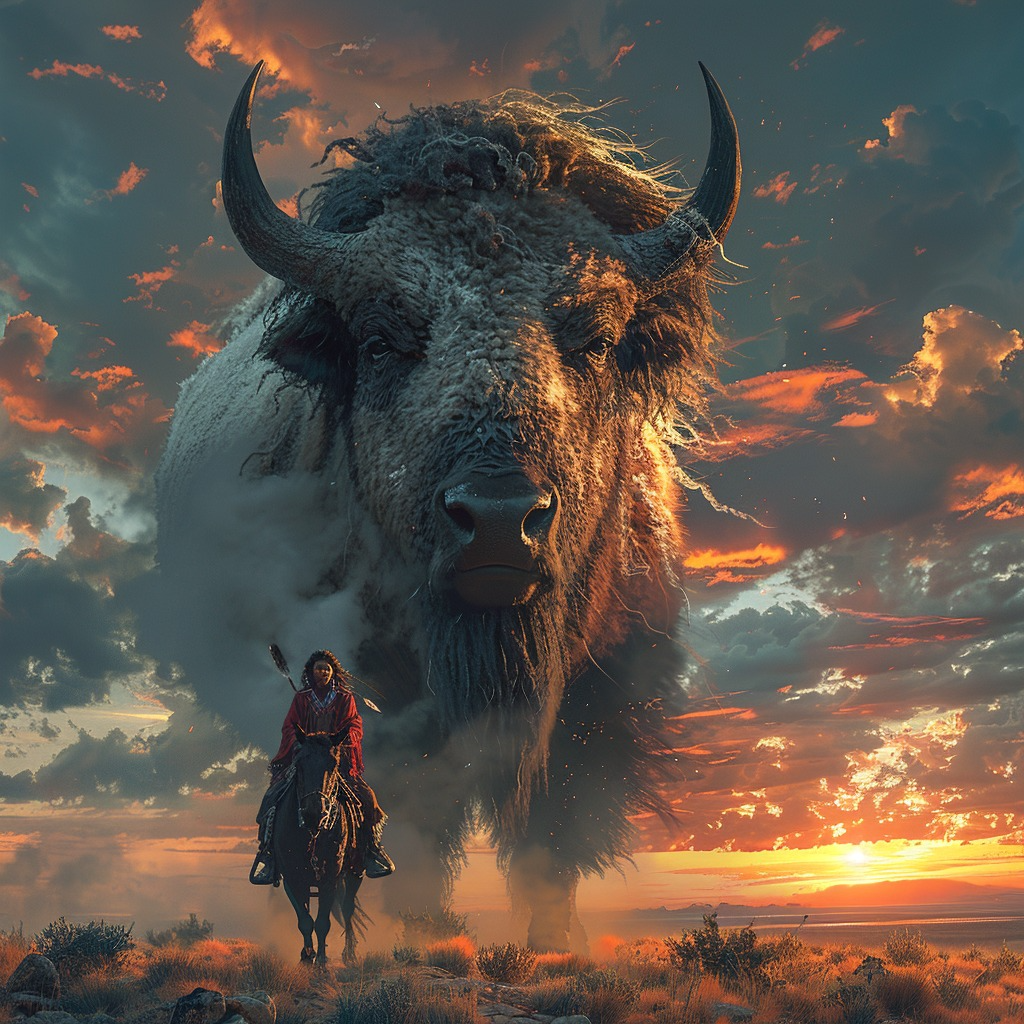In many cultures worldwide, the wolf is a symbol of strength, loyalty, and freedom. For Native American tribes, the wolf holds a particularly revered place. These magnificent animals are not just part of the natural landscape but also central to spiritual and cultural beliefs.
Perspectives of Different Tribes
1. The Plains Tribes
Among the Plains tribes like the Sioux, Cheyenne, and Blackfoot, the wolf is seen as a symbol of protection and guidance. Legends speak of wolves guiding lost hunters back to their camps and teaching humans about family bonds and survival strategies.

2. The Southwestern Tribes
In the Southwestern tribes, such as the Hopi and Navajo, the wolf appears in various myths and ceremonies. For the Hopi, the wolf is part of the Kachina—a spirit being that plays a key role in rituals. The Navajo consider the wolf a pathfinder and spiritual guardian.
3. The Northeastern Tribes
The Iroquois and Algonquin tribes of the Northeast view the wolf as a powerful spiritual guide. Stories often depict wolves as wise and brave, offering protection and teaching essential life skills.
Spiritual and Symbolic Meanings
1. The Wolf as a Totem Animal
In Native American culture, a totem is an animal spirit that guides and protects individuals or groups. The wolf totem embodies traits such as intelligence, courage, and social connection. Those who identify with the wolf totem are believed to possess strong instincts and keen insight.
2. The Wolf in Vision Quests and Shamanic Practices
Wolves play a crucial role in vision quests, where individuals seek spiritual guidance and clarity. Shamans, or spiritual healers, often invoke the spirit of the wolf during rituals to gain wisdom and healing powers. These practices highlight the deep spiritual bond between Native Americans and wolves.
Wolves in Myths and Legends
1. Creation Myths
In many creation myths, wolves are depicted as creators or protectors of the world. For instance, some tribes believe that wolves helped shape the land and its inhabitants, embodying the spirit of life and creation.
2. Moral and Teaching Stories
Wolves often feature in stories that teach moral values and life lessons. These tales are used to educate younger generations about bravery, cooperation, and respect for nature. For example, a common story might involve a wolf demonstrating the importance of community and mutual support.
Influence on Native American Life and Spirituality
1. Daily Life and Practices
Wolves have influenced various aspects of Native American daily life, from hunting techniques to survival skills. Many tribes studied wolf behavior to improve their own tracking and hunting methods. Ceremonial practices, such as dances and songs, often include elements inspired by wolves.
2. The Wolf in Art and Symbolism
Wolves are prominently featured in Native American art, including pottery, textiles, and jewelry. These artistic representations often highlight the wolf's symbolic meanings, such as protection, bravery, and wisdom.
Preservation and Contemporary Relevance
1. Modern-Day Reverence and Cultural Practices
Today, many Native American communities continue to honor the wolf through ceremonies and storytelling. Cultural events often include wolf dances and songs, keeping the traditions alive and fostering a sense of identity and continuity.
2. The Wolf's Role in Modern Spirituality
The wolf's symbolism has transcended its traditional roots, finding a place in modern spirituality and personal growth practices. Many people today draw inspiration from the wolf's traits of loyalty, intuition, and freedom in their own lives. The wolf continues to be a powerful symbol in contemporary storytelling and media, reflecting its enduring legacy.
Conclusion
The wolf's multifaceted role in Native American culture is a testament to the deep connection between humans and nature. From spiritual guidance to practical life lessons, the wolf embodies qualities that are revered and respected. As we reflect on these traditions, we recognize the importance of preserving and honoring the cultural heritage that keeps the spirit of the wolf alive.















